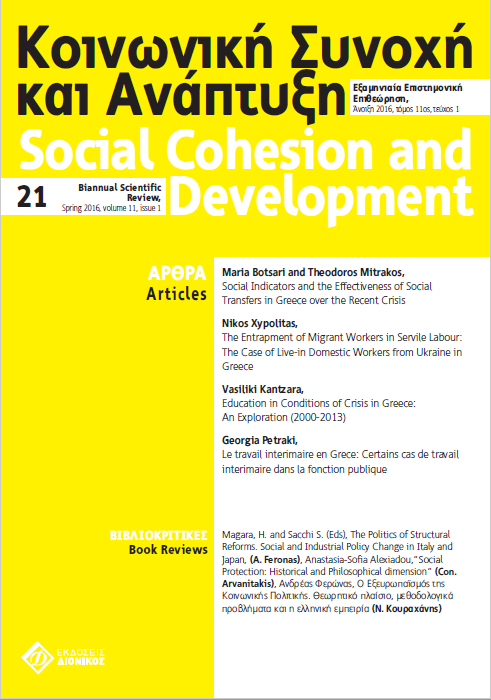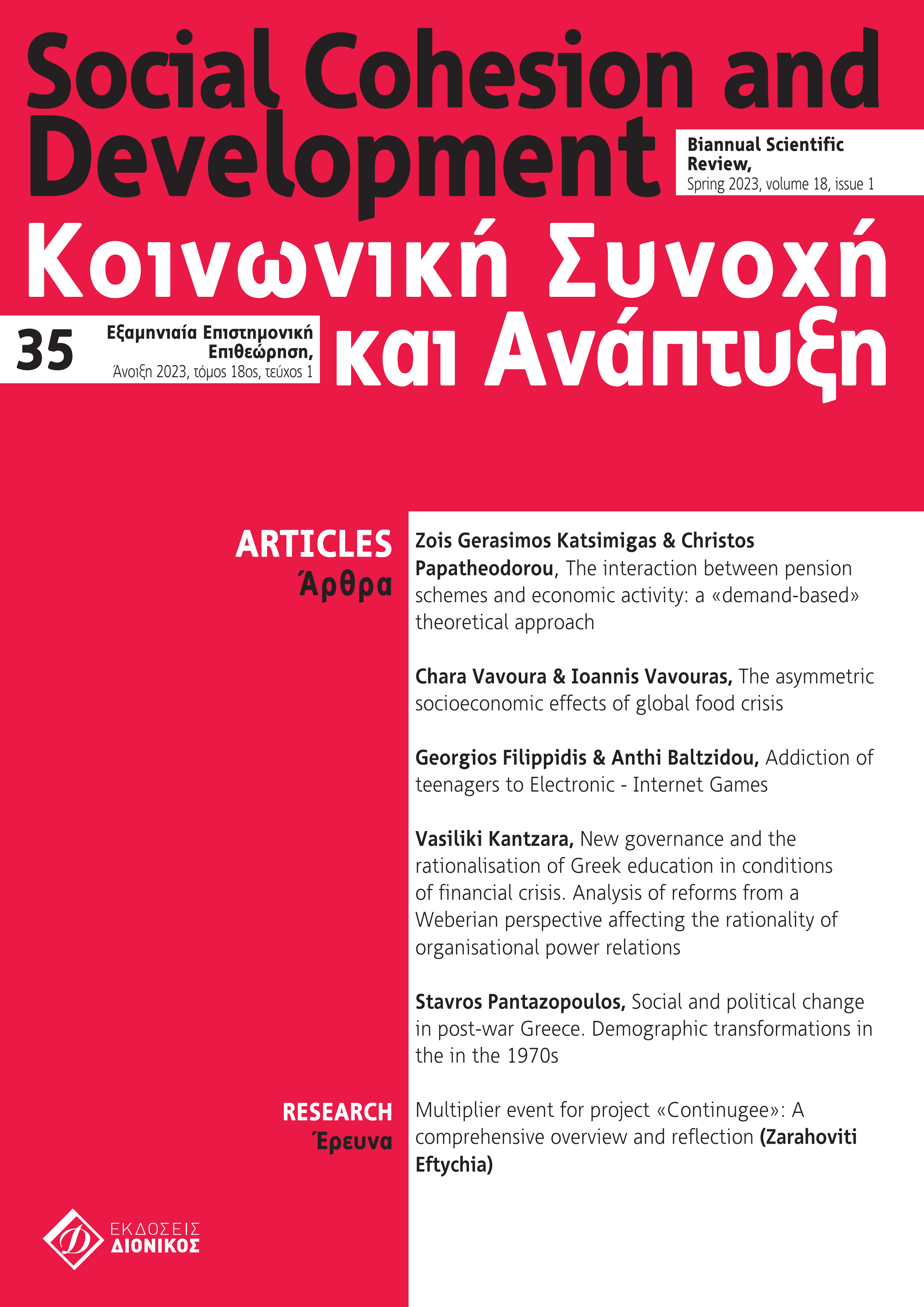Education in Conditions of Crisis in Greece: An Empirical Exploration (2000-2013)
Abstract
The article aims at exploring the ramification of the crisis on education in terms of access to education, educational attainment of the population, funding, schools, teachers and students. These and other aspects of education are examined on basis of statistical data that has been collected and published by international agencies and Greek sources. In order to analyse fluctuations and trends, the data examined covers a period before and after the onset of the crisis (in 2009), namely from 2000 to 2013. In addition, socio-political developments and educational policy are taken into consideration, for they form the context in which education operates.The concept guiding this endeavour is equity; it is defined normatively as equality of opportunity and meritocracy, the two principles upon which social institutions function in a democratic society.The results point to differences in the ways education has been affected by the crisis: at micro and meso level, for example, the funding, the school units and the education personnel have been reduced; at macro level, access to education and education attainment continues to rise, but to a lesser degree than before the onset of the crisis.
Article Details
- Zitationsvorschlag
-
Kantzara, V. (2016). Education in Conditions of Crisis in Greece: An Empirical Exploration (2000-2013). Social Cohesion and Development, 11(1), 45–66. https://doi.org/10.12681/scad.10854
- Ausgabe
- Bd. 11 Nr. 1 (2016)
- Rubrik
- Articles

Dieses Werk steht unter der Lizenz Creative Commons Namensnennung - Nicht-kommerziell - Weitergabe unter gleichen Bedingungen 4.0 International.
Authors who publish with this journal agree to the following terms:
- Authors retain copyright and grant the journal right of first publication with the work simultaneously licensed under a Creative Commons Attribution Non-Commercial License that allows others to share the work with an acknowledgement of the work's authorship and initial publication in this journal.
- Authors are able to enter into separate, additional contractual arrangements for the non-exclusive distribution of the journal's published version of the work (e.g. post it to an institutional repository or publish it in a book), with an acknowledgement of its initial publication in this journal.
- Authors are permitted and encouraged to post their work online (preferably in institutional repositories or on their website) prior to and during the submission process, as it can lead to productive exchanges, as well as earlier and greater citation of published work (See The Effect of Open Access).





